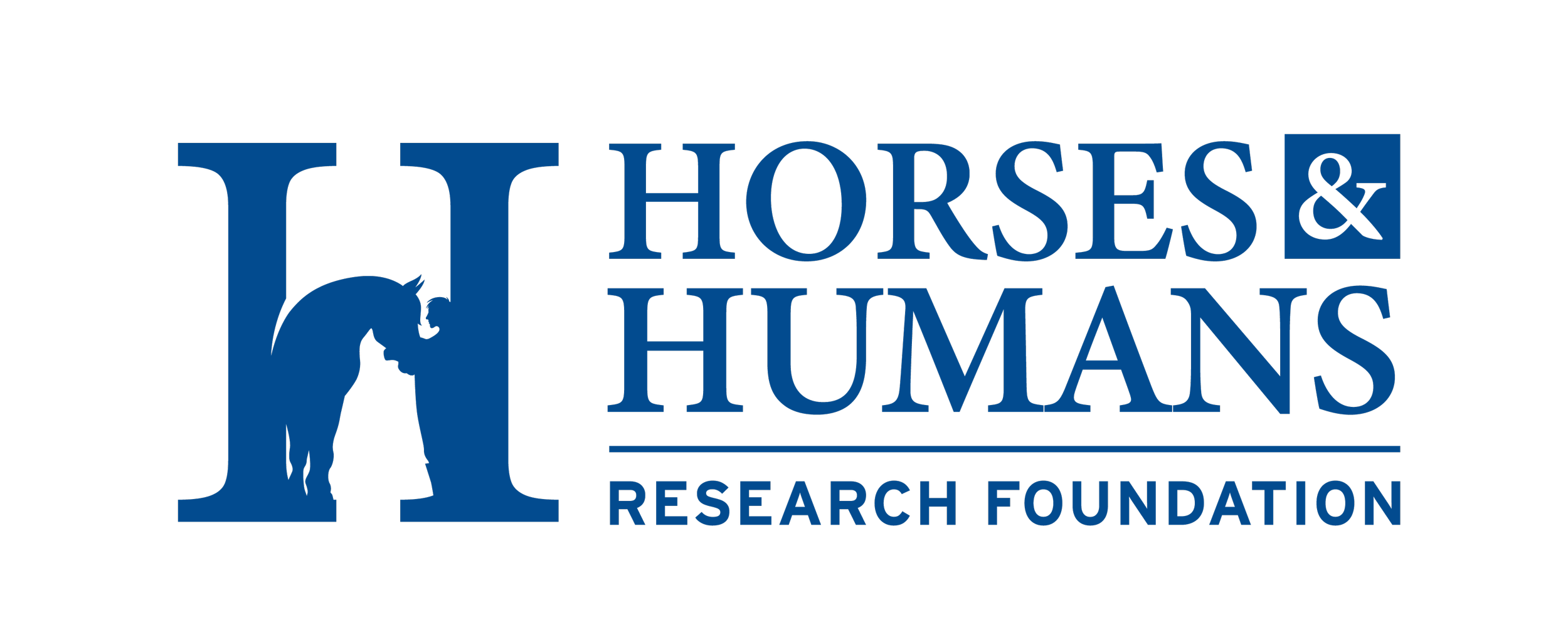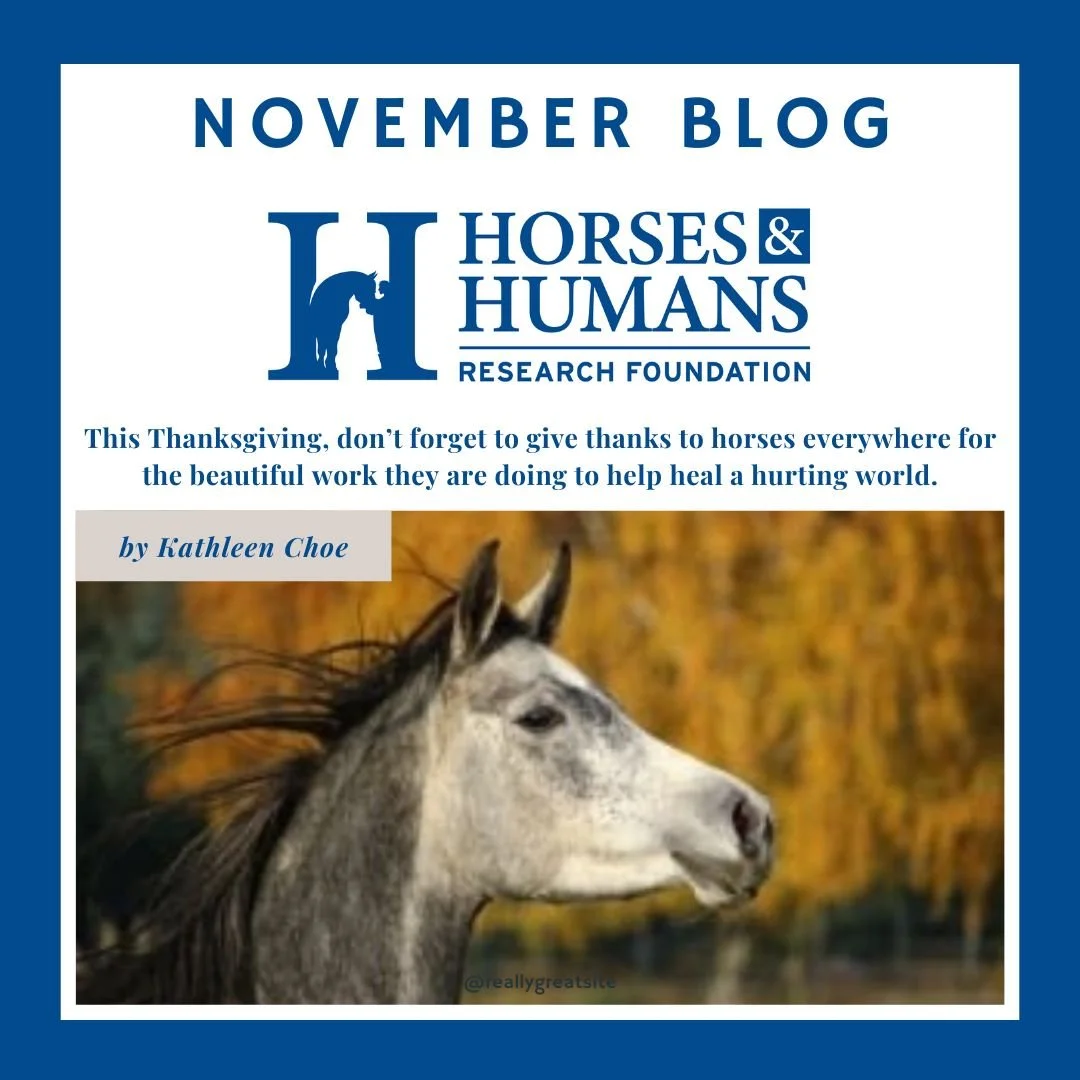November Blog
As we celebrate the Thanksgiving holiday this month, we are often encouraged to reflect on the blessings we are thankful for and express gratitude to people who have had a positive impact on our lives. Have you considered being thankful for the role horses have played in your life and the lives of your ancestors?
Horses have been our loyal companions throughout history. In the not so distant past, having access to horses could mean the difference between surviving and thriving. They pulled ploughs, carried soldiers into battle, delivered library books to families living in areas which were inaccessible by other means, accompanied cowboys on cattle drives, carried the mail, and provided transportation. As motorized vehicles and machinery slowly began to replace horses in many of these roles, horses became popular for sports and recreational pursuits such as rodeo riding, racing, dressage, show jumping, and eventing. As evidence mounted that the physical movement of the horse could be beneficial for the human body and brain, therapeutic riding became a part of the treatment regime in physical, occupational, speech and other therapies being offered to patients. More recently, people have come to recognize the potential for horses to be helpful in the field of mental health.
Horses make natural partners for doing healing work with humans. We both have a mammalian nervous system and brain that develops in response to sensory input. Both horses and humans are social creatures who need connection in order to survive and thrive, and whose nervous systems engage in fight, flight, freeze or fawn when faced with a threat. Traumatic experiences affect humans and horses in similar ways, and both can heal from trauma by experiencing safe and trustworthy relational interactions consistently over time.
Regardless of country, income, gender, discipline, or the level of previous experience with horses, most people believe that it is possible to develop a bond with a horse. In a study by Merkies and Franzin, participants referenced this bond by citing the following factors: the horse approaching them, vocally greeting them, trusting them in a frightening situation, taking care of them during hardships, and physically touching them. [1]
For people who have been deeply wounded in their human relationships, learning to trust and build a bond with a horse can be a significant factor in their trauma recovery.[2] Rediscovering a capacity for relational engagement with an animal who is genuinely present and non-judgmental, and who will always respond with authenticity in the moment can help hurting humans begin to believe in this possibility with other people in their lives as well.
Here at HHRF, we believe that horses are sentient beings who possess cognitive abilities, emotional depth, and a capacity for suffering, just as people do. Horses are aware of, sensitive to, and affected by their environment, including the physical and emotional state of others in their presence. They build resilience when cared for with consideration and empathy. They deserve to be regarded as partners rather than objects or tools in any capacity where they are interacting with humans.
Even horses who have experienced maltreatment at the hands of humans can be very gracious and willing to give us another chance to win back their trust and rebuild a healthy bond together. My off the track Thoroughbred, Chief, had some very unfortunate experiences in his racing career that left him with a great deal of anxiety around humans. Over time, I have seen him move from a hypervigilant state of constantly fearing harm to a confident expectation that he will be greeted with carrots and pats when people enter his pasture. I am grateful he was willing to give people another chance, and that in his role as a therapy horse, he can similarly give people a chance to have hope in the goodness of others once again.
This Thanksgiving, don’t forget to give thanks to horses everywhere for the beautiful work they are doing to help heal a hurting world.
[1] Merkies, K., Franzin, O. Enhanced Understanding of Horse-Human Interactions to Optimize Welfare. Animals (Basel). 2021.
[2] Nieforth, L. O., & Craig, E. A. (2020). Patient-Centered Communication (PCC) in Equine Assisted Mental Health. Health Communication, 36(13), 1656–1665. https://doi.org/10.1080/10410236.2020.1785376

